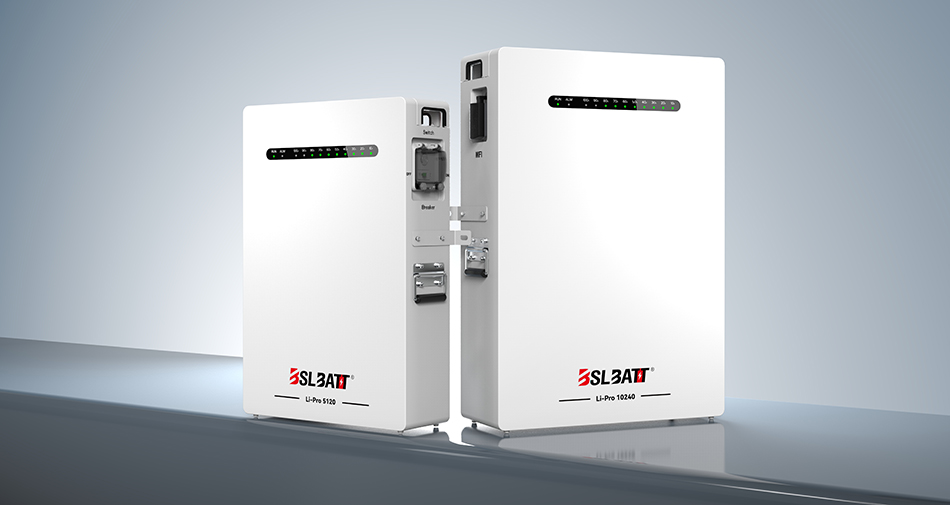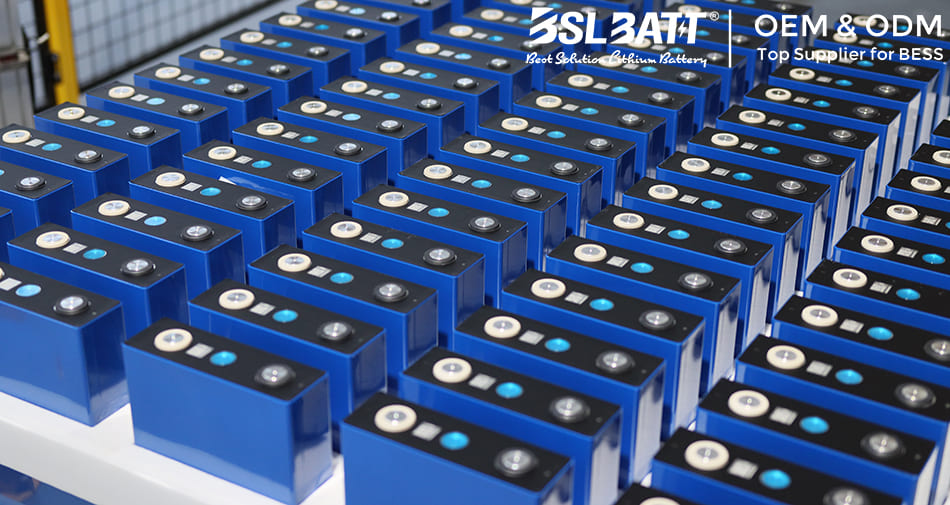د نوي کیدونکي انرژۍ ذخیره کولو د چټک پرمختګ سره، بې شمیره تولیدونکي او عرضه کوونکيد LiFePO4 بیټرۍپه چین کې راڅرګند شوي دي. په هرصورت، د دې تولیدونکو کیفیت د پام وړ توپیر لري. نو، تاسو څنګه ډاډ ترلاسه کولی شئ چې هغه کور بیټرۍ چې تاسو یې اخلئ د A درجې LiFePO4 حجرو څخه جوړه شوې ده؟
په چین کې، د LiFePO4 حجرې معمولا په پنځو درجو ویشل شوي دي:
- الف+ درجه
– الف ټولګي-
– دوهم ټولګي
– دوم ټولګي
- دوهم لاس
دواړه A+ او A- درجې د A درجې LiFePO4 حجرې ګڼل کیږي. په هرصورت، درجه A- د ټول ظرفیت، حجرو ثبات، او داخلي مقاومت له مخې یو څه ټیټ فعالیت ښیې.
څنګه د A درجې LiFePO4 حجرو په چټکۍ سره وپیژنو؟
که تاسو د لمریزې تجهیزاتو ویشونکی یا نصب کونکی یاست چې د بیټرۍ نوي عرضه کونکي سره کار کوئ، تاسو څنګه کولی شئ په چټکۍ سره وټاکئ چې عرضه کونکی تاسو ته د A درجې LiFePO4 حجرې چمتو کوي؟ دا ګامونه تعقیب کړئ، او تاسو به ژر تر ژره دا ارزښتناکه مهارت ترلاسه کړئ.
لومړی ګام: د حجرو د انرژۍ کثافت ارزونه وکړئ
راځئ چې په چین کې د پنځو غوره انرژي ذخیره کولو بیټرۍ جوړونکو څخه د 3.2V 100Ah LiFePO4 حجرو د انرژۍ کثافت پرتله کولو سره پیل وکړو:
| برانډ | وزن | د ځانګړتیاوو | وړتیا | د انرژۍ کثافت |
| ایوا | ۱.۹۸ کیلوګرامه | 3.2V 100Ah | ۳۲۰ واټه | ۱۶۱ واټه/کیلو ګرامه |
| REPT | ۲.۰۵ کیلوګرامه | 3.2V 100Ah | ۳۲۰ واټه | ۱۵۰ واټه/کیلو ګرامه |
| CATL د سوداګرۍ | ۲.۲۷ کیلوګرامه | 3.2V 100Ah | ۳۲۰ واټه | ۱۴۰ واټه/کیلو ګرامه |
| د BYD | ۱.۹۶ کیلوګرامه | 3.2V 100Ah | ۳۲۰ واټه | ۱۶۳ واټه/کیلو ګرامه |
لارښوونې: د انرژۍ کثافت = ظرفیت / وزن
د دې معلوماتو څخه، موږ کولی شو پایله وکړو چې د مخکښو تولیدونکو څخه د A درجې LiFePO4 حجرې لږترلږه 140Wh/kg د انرژۍ کثافت لري. په عمومي ډول، د 5kWh کور بیټرۍ 16 داسې حجرو ته اړتیا لري، د بیټرۍ پوښ شاوخوا 15-20kg وزن لري. په دې توګه، ټول وزن به دا وي:
| برانډ | د حجرو وزن | د بکس وزن | د ځانګړتیاوو | وړتیا | د انرژۍ کثافت |
| ایوا | ۳۱.۶۸ کیلوګرامه | ۲۰ کیلوګرامه | ۵۱.۲وی ۱۰۰آه | ۵۱۲۰ واټه | ۹۹.۰۷ واټه/کیلو ګرامه |
| REPT | ۳۲.۸ کیلوګرامه | ۲۰ کیلوګرامه | ۵۱.۲وی ۱۰۰آه | ۵۱۲۰ واټه | ۹۶.۹۶ واټه/کیلو ګرامه |
| CATL د سوداګرۍ | ۳۶.۳۲ کیلوګرامه | ۲۰ کیلوګرامه | ۵۱.۲وی ۱۰۰آه | ۵۱۲۰ واټه | ۹۰.۹۰ واټه/کیلو ګرامه |
| د BYD | ۳۱.۳۶ کیلوګرامه | ۲۰ کیلوګرامه | ۵۱.۲وی ۱۰۰آه | ۵۱۲۰ واټه | ۹۹.۶۸ واټه/کیلو ګرامه |
لارښوونې: د انرژۍ کثافت = ظرفیت / (د حجرو وزن + د بکس وزن)
په بل عبارت، یود کور بیټرۍ ۵ کیلو واټهد A درجې LiFePO4 حجرو کارول باید لږترلږه 90.90Wh/kg د انرژۍ کثافت ولري. د BSLBATT د Li-PRO 5120 ماډل د ځانګړتیاوو له مخې، د انرژۍ کثافت 101.79Wh/kg دی، کوم چې د EVE او REPT حجرو لپاره د معلوماتو سره نږدې سمون لري.
دوهم ګام: د حجرو وزن ارزونه وکړئ
د څلورو مخکښو تولیدونکو د معلوماتو پراساس، د یو واحد 3.2V 100Ah درجې A LiFePO4 حجرو وزن تقریبا 2 کیلوګرامه دی. له دې څخه، موږ محاسبه کولی شو:
- د ۱۶S۱P ۵۱.۲V ۱۰۰Ah بیټرۍ وزن به ۳۲ کیلوګرامه وي، او د کیسینګ وزن به شاوخوا ۲۰ کیلوګرامه وي، چې ټول وزن به یې ۵۲ کیلوګرامه وي.
- د ۱۶S2P ۵۱.۲V ۲۰۰Ah بیټرۍ وزن به ۶۴ کیلوګرامه وي، او د کیسینګ وزن به شاوخوا ۳۰ کیلوګرامه وي، چې ټول وزن به یې ۹۴ کیلوګرامه وي.
(ډیری جوړونکي اوس په مستقیم ډول د 51.2V 200Ah بیټرۍ لپاره 3.2V 200Ah حجرې کاروي، لکه BSLBATT'sلی-پرو ۱۰۲۴۰. د محاسبې اصل ورته پاتې دی.)
له همدې امله، کله چې نرخونه بیاکتنه کوئ، د جوړونکي لخوا چمتو شوي د بیټرۍ وزن ته ډیره پاملرنه وکړئ. که چیرې بیټرۍ ډیره درنه وي، نو کارول شوي حجرې احتمال لري د پوښتنې وړ کیفیت ولري او یقینا د A درجې LiFePO4 حجرې ندي.
د بریښنایی موټرو د لوی تولید سره، ډیری تقاعد شوي EV بیټرۍ د انرژۍ ذخیره کولو لپاره بیا کارول کیږي. دا حجرې معمولا د زرګونو چارج دورې څخه تیریږي، چې د LiFePO4 حجرو د دورې ژوند او روغتیا حالت (SOH) د پام وړ کموي، په بالقوه توګه د دوی د اصلي ظرفیت یوازې 70٪ یا لږ پریږدي. که چیرې د دوهم لاس حجرې د کور بیټرۍ جوړولو لپاره وکارول شي، نو ورته لاسته راوړل۱۰ کیلو واټه ساعت د ظرفیت لوړولو لپاره به ډیرو حجرو ته اړتیا وي، چې په پایله کې به یې بیټرۍ درنه وي.
د دې دوو ګامونو په تعقیب سره، تاسو به وکولی شئ د بیټرۍ یو مسلکي متخصص شئ چې په ډاډ سره وپیژني چې آیا ستاسو بیټرۍ د A درجې LiFePO4 حجرو سره جوړه شوې ده، دا طریقه په ځانګړي ډول د لمریز تجهیزاتو توزیع کونکو یا د منځني بازار پیرودونکو لپاره ګټوره کوي.
البته، که تاسو د نوي کیدونکي انرژۍ په برخه کې مسلکي یاست او د بیټرۍ ازموینې تجهیزاتو ته لاسرسی لرئ، تاسو کولی شئ د حجرو درجه په ډیر دقیق ډول مشخص کولو لپاره نور تخنیکي پیرامیټرې لکه ظرفیت، داخلي مقاومت، د ځان خارجیدو کچه، او د ظرفیت بیا رغونه هم ارزونه وکړئ.
وروستۍ لارښوونې
لکه څنګه چې د انرژۍ ذخیره کولو بازار پراخیږي، ډیر او ډیر برانډونه او تولیدونکي به راڅرګند شي. کله چې عرضه کونکی غوره کوئ، تل د هغو کسانو څخه محتاط اوسئ چې په شکمن ډول ټیټ نرخونه یا نوي رامینځته شوي شرکتونه وړاندې کوي، ځکه چې دوی ممکن ستاسو سوداګرۍ ته خطر رامینځته کړي. ځینې عرضه کونکي ممکن حتی د کور بیټرۍ تولید لپاره د A درجې LiFePO4 حجرې وکاروي مګر اصلي ظرفیت مبالغه کوي. د مثال په توګه، د 3.2V 280Ah حجرو سره جوړ شوی بیټرۍ چې د 51.2V 280Ah بیټرۍ جوړوي د 14.3kWh ظرفیت به ولري، مګر عرضه کونکی ممکن دا د 15kWh په توګه اعلان کړي ځکه چې ظرفیتونه نږدې دي. دا کولی شي تاسو په دې فکر کولو کې ګمراه کړي چې تاسو په ټیټه بیه کې د 15kWh بیټرۍ ترلاسه کوئ، پداسې حال کې چې په حقیقت کې، دا یوازې 14.3kWh دی.
د باور وړ او مسلکي کور بیټرۍ عرضه کوونکي غوره کول یو ننګونکی کار دی. د ډیری انتخابونو شتون سره، دا اسانه ده چې مغشوش شي. له همدې امله موږ سپارښتنه کوو چې وګورئBSLBATT د سوداګرۍ خونه ده.، یو تولید کونکی چې د بیټرۍ صنعت کې د 20 کلونو څخه ډیر تجربه لري. پداسې حال کې چې زموږ نرخونه ممکن ټیټ نه وي، زموږ د محصول کیفیت او خدمت تضمین شوی چې تلپاتې تاثیر پریږدي. دا زموږ د برانډ لید کې ریښه لري: د غوره لیتیم بیټرۍ حلونه چمتو کول، له همدې امله موږ تل د A درجې LiFePO4 حجرو کارولو باندې ټینګار کوو.
د پوسټ وخت: سپتمبر-۱۹-۲۰۲۴










